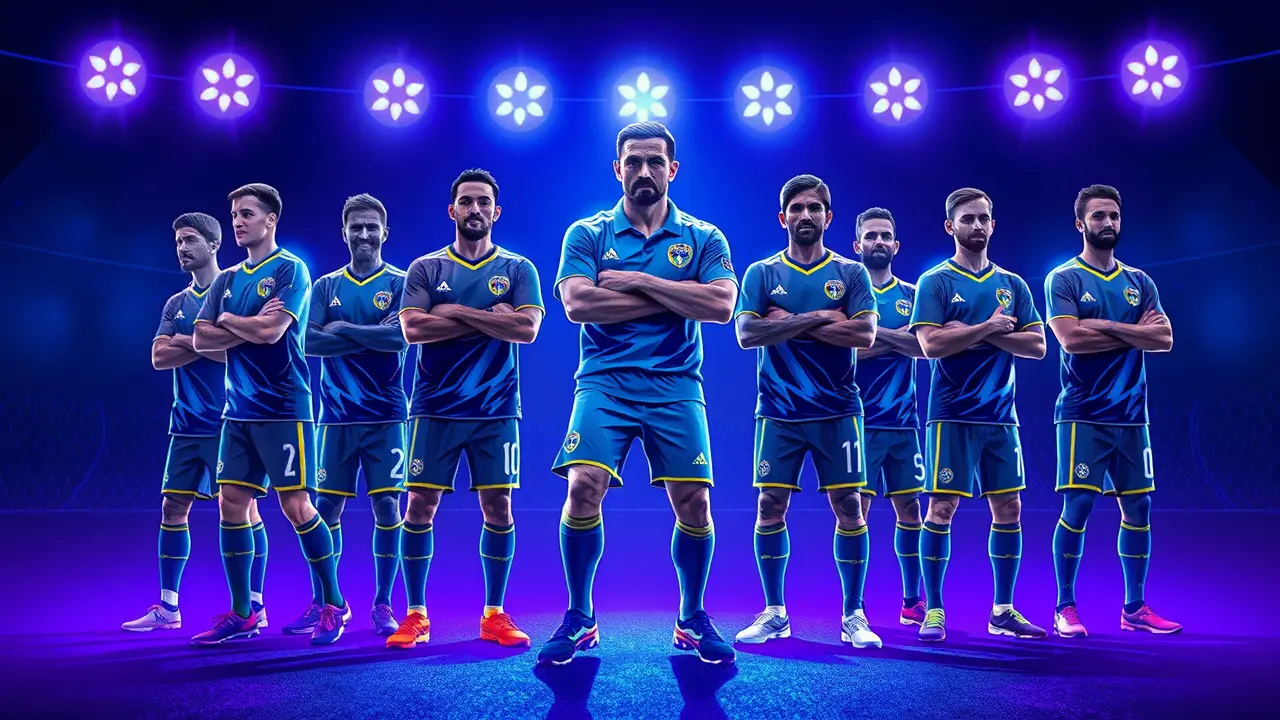Zenit coach Semak responds to team being called Brazil national team.
Zenit coach Sergei Semak has offered a characteristically pragmatic response to the growing trend of his Saint Petersburg squad being dubbed the 'Brazil national team,' a moniker born from the fact that the club currently fields a remarkable seven Brazilian players. In a footballing landscape increasingly dominated by soundbites and social media snark, Semak displayed a veteran's composure, brushing off the label not as an insult but as a symptom of modern discourse, where 'it’s much easier to needle and write all sorts of nonsense than to discuss something good.' This, he lamented, is simply the reality of the game today. However, Semak, a man who has steered Zenit to an unprecedented six consecutive Russian Premier League titles, was quick to draw a sharp distinction between the criticism leveled at his dominant side and that aimed at other successful clubs, such as FC Krasnodar.'The reason is one,' he stated with the clarity of a seasoned tactician. 'Krasnodar became champions once, and we – six in a row.' He surmised that the root of the intensified, often cynical, scrutiny is simple collective fatigue; the football world has grown weary of their relentless supremacy, a dynasty that echoes the domestic strangleholds of giants like Bayern Munich in the Bundesliga or Juventus during their Serie A reign. This phenomenon isn't merely about trophy counts but speaks to a deeper psychological dynamic in sports, where sustained excellence can paradoxically breed resentment rather than universal admiration.The comparison to the Brazilian national team, while superficially a comment on the squad's composition, is loaded with subtext. On one hand, it nods to the samba flair and technical brilliance that Brazilian players are famed for, suggesting Zenit's style has become synonymous with an attractive, attacking brand of football reminiscent of the Seleção's golden eras featuring legends like Pelé, Zico, or Ronaldo.Yet, on the other hand, the label carries a subtle dismissiveness, implying the club's success is bought rather than built, reliant on imported talent rather than homegrown grit. Semak’s calm dismissal of this narrative is a masterclass in managerial psychology, refusing to be drawn into a war of words and instead focusing on the tangible results that define his legacy.It raises compelling questions about identity in the modern, globalized game: can a Russian club with a strong Brazilian core maintain a distinct character, or does such a concentration of foreign talent inherently reshape its soul? Analysts might point to Chelsea's various iterations or Manchester City's multinational squads as parallels, where success has been forged through diverse, international rosters. The underlying financial muscle of Gazprom-backed Zenit cannot be ignored in this equation, providing the resources to assemble such a talented contingent, much like Paris Saint-Germain's Qatari ownership transformed Ligue 1.Yet, money alone does not guarantee harmony or trophies; it is Semak's understated man-management that has successfully integrated these stars into a cohesive, winning machine, a task that has eluded many other lavishly funded projects. Looking forward, this 'Brazilianization' of Zenit presents both an opportunity and a challenge.It solidifies their status as the undisputed powerhouse of Russian football, a magnet for top talent from South America seeking a lucrative and competitive European platform. However, it also places immense pressure on the club to perform not just domestically but to make a more significant impact in the UEFA Champions League, where their performances are scrutinized against the very best.Furthermore, it invites ongoing debate about the development of Russian players within the squad and the long-term strategic vision for the club. Semak’s response, therefore, is more than just a press conference soundbite; it is a strategic positioning. By acknowledging the chatter without letting it derail his focus, he embodies the 'strong don't get loved' ethos he referenced, reinforcing the image of Zenit as an immovable object in Russian football, too busy collecting championships to be bothered by nicknames.
JA
Jamie Larson123k2 days ago
interesting take but tbh i'm just surprised they have seven brazilian players on the team, feels like a lot
0
